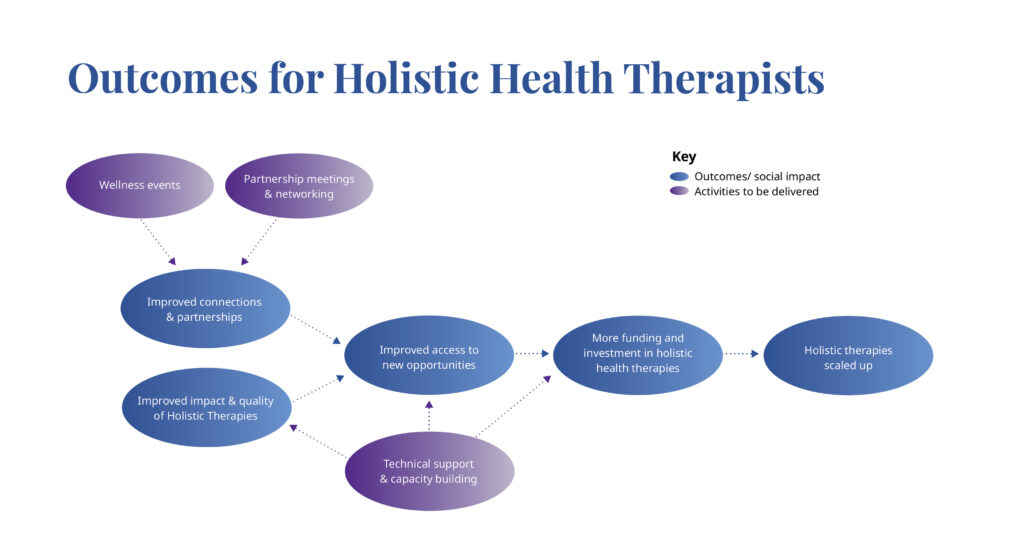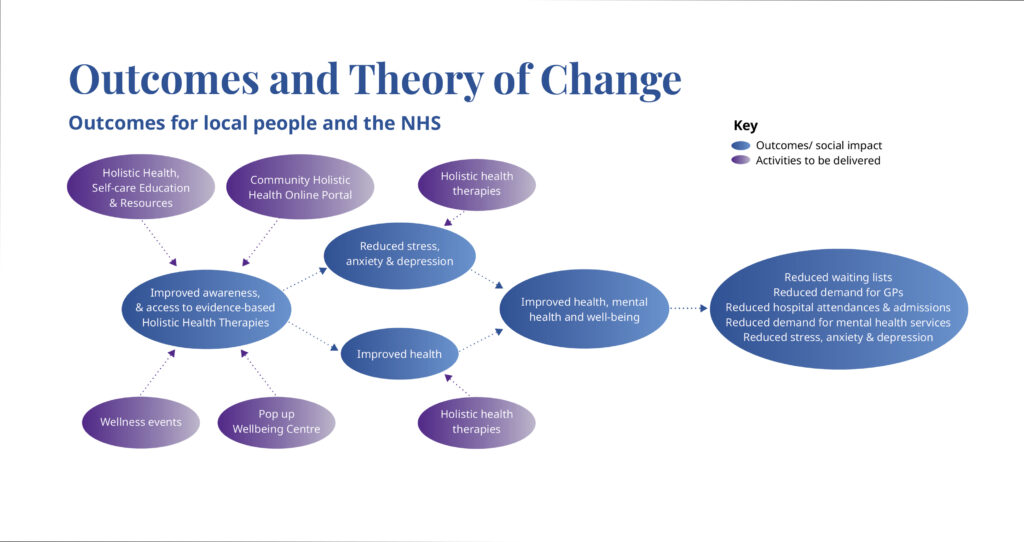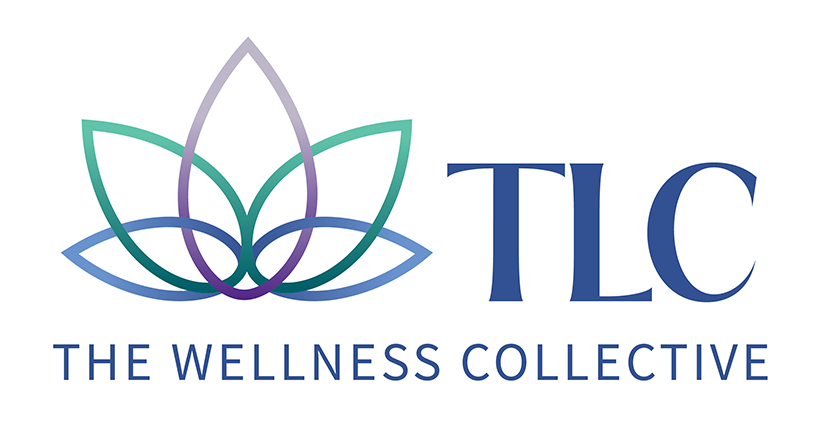Our Impact
Improving impact management practice in the wellness sector
Our theory of change
Our theory of change sets out the outcomes that we will achieve by delivering holistic health and wellbeing services to all the main stakeholders – individuals that use the service, the holistic health therapists and the NHS. Our overall aim is to maximise our impact for all of our stakeholders.
One of our goals is to collect data to evidence the impact of holistic health and wellbeing therapies on people’s health and wellbeing and on demand for public sector health and social care. We will therefore set up and collect data on our impact drawing on best practice, delivered by one of our founders who is also an Advanced, Accredited Practitioner with Social Value International. All of our members will use the same data collection tools for a better customer service so that we can assess our impact as a collective.


Other evidence that holistic health therapies improve mental health
Reflexology reduces anxiety:
https://jag.journalagent.com/phd/pdfs/PHD-05579-RESEARCH_ARTICLE-UGURYOL%5BA%5D.pdf
Mindfulness supports depression, pain, smoking and addictions:
https://pubmed.ncbi.nlm.nih.gov/29455695/
A meta-analytic review of randomized controlled trials addressing the effect of mindfulness interventions in adult patients recruited from primary care settings showed that mindfulness interventions are promising for the mental health and quality of life of primary care patients.
Yoga reduces stress, anxiety, depression and improves wellbeing:
Ayurvedic Indian Head Massage reduces anxiety:
There is evidence that ayurvedic Indian Head massage increases the parasympathetic nerve activity after head treatment. Head treatment boosted freshness and relieved anxiety.
Traditional Chinese Medicine for emotional support:
Research evidences that traditional Chinese medicine offers a cogent basis for assessing and clinically managing patients with mental health issues and that it integrates well with Western medicine. It focuses on energy imbalances. Energy psychology, acupuncture qigong and hypnosis help to release pathogenic emotions.
Acupuncture to reduce depression:
The World Health Organisation recommends acupuncture for the treatment of depression and other long-term health conditions:
https://holistic-health.org.uk/world-health-organisation-recommends-acupuncture-100-conditions/
Aromatherapy reduces stress, depression and improves sleep:
There is good evidence to show that aromatherapy improves the physical and mental
health of the elderly in the community and can significantly reduce stress.
Ke, M.-H.; Hsieh, K.-T.; Hsieh,W.-Y. Effects of Aromatherapy on the Physical and Mental Health and Pressure of the Middle-Aged and Elderly in the Community (2022), Appl. Sci.
https://doi.org/10.3390/app12104823
Clinical trials have demonstrated the influence of essential oils in physiological parameters such as blood pressure, heart rate, respiratory rate, brain waves composition, and cortisol serum levels with concomitant psychological effects. Although more clinical research is needed. https://onlinelibrary.wiley.com/doi/full/10.1002/ptr.6854
Other evidence that it reduces hypertension, stress, depression, and improves sleep:
https://www.hsrd.research.va.gov/publications/esp/aromatherapy-REPORT.pdf
